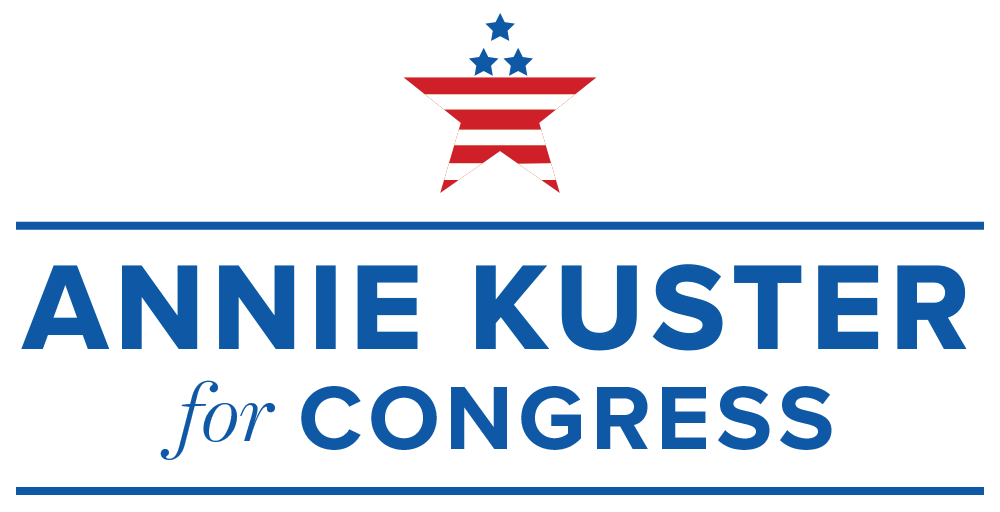By Rick Green | October 27, 2022
Annie Kuster, who is seeking re-election to the U.S. House, criticized corporate profit-taking for contributing to inflation but praised Democratic efforts to lower prices.
She met via Zoom Wednesday with The Sentinel’s editorial board.
Democrats in the U.S. House and Senate approved the Inflation Reduction Act in August, and it was quickly signed into law by President Joe Biden, who said it would lower costs for families, combat climate change and reduce the deficit.
Kuster, a Hopkinton Democrat running for her sixth term in New Hampshire’s 2nd Congressional District, faces a challenge Nov. 8 from Republican Bob Burns, 44, of Pembroke, a former Hillsborough County treasurer who worked on Donald Trump’s 2016 presidential campaign.
Kuster said the act will bring down medication costs by allowing Medicare to negotiate prescription drug prices for consumers while limiting the cost of insulin for Medicare beneficiaries to no more than $35 per month.
Lawmakers need to look at the actions of companies that seem to have benefited from inflation, she said. Consumer prices for the 12-month period ending last month were 8.2 percent higher than the previous year, according to the U.S. Bureau of Labor Statistics.
“We need to tackle the food and energy costs,” she said. “A big part of that actually has to do with price gouging and profiteering.”
Energy and Commerce Committee Chairman Frank Pallone Jr., D-N.J., wrote a letter to four major oil companies in August questioning their combined $50 billion in quarterly profits.
Food prices have also been increasing.
Kuster said that over the long-term, lawmakers need to consider improving antitrust laws to encourage competition at a time when corporate consolidation has reduced the sources of food supplies.
“It has been a priority for me through the past three farm bills to invest in the distribution system and support our local farmers so that we can eat food produced closer to home and not pay the price of shipping it all the way across the country,” Kuster said.
Republican candidates have blamed Democratic spending for driving up the deficit and contributing to inflation, but Kuster said the Inflation Reduction Act will reduce the deficit by $238 billion. The act imposes a 15 percent minimum tax on corporate profits.
“And when it comes to the deficit, you have to take yourself back to the Trump years and the $2 trillion deficit that was incurred when they lowered taxes on millionaires and billionaires and didn’t help the rest of us,” she said.
Kuster said government spending programs during the COVID-19 pandemic were necessary to avert a looming economic crisis of epic proportions.
For example, the Paycheck Protection Program, which was part of an act Trump signed into law in March 2020, was sorely needed, she said.
“You have to take yourself back to March of 2020 when all of these businesses would have closed their doors. We would have had rampant hunger. We would have had people living in the streets,” she said.
“So there was an urgency to that program. Frankly I think it was nothing short of a miracle that we stood that program up before the end of March.”
Kuster said Trump made the public health crisis much worse by failing to adequately support vaccinations as soon as they were available.
She said he should have “pulled up his sleeve and taken the vaccine publicly” as soon as he could.
“Instead, the vaccination became very politicized,” Kuster said. “Tragically, there are many more COVID deaths in red conservative Republican counties around the country than there are where there is a majority of Democrats.”
On other issues, Kuster said:
She supports federal legislation that would enshrine in statute the right to an abortion prior to viability of the fetus outside the womb.
A comprehensive immigration reform law is needed to fix what she said is a broken system. However, she acknowledged there is no Republican support for such an effort. “I don’t think [Republicans] want the issue to go away. I think they like to demagogue it as a political issue.”
She would like to see greater investment in renewable energy, such as wind and solar. Failure to develop such alternative sources of power has led to higher energy costs in New Hampshire compared to its neighbors in the region, she said.
She supports more gun-safety laws, including greater restrictions on assault-style rifles of the type that have been used in school shootings. “I’ve yet to meet a hunter who is going out to get a buck with ... a weapon of war that can shoot dozens of rounds in a matter of seconds.”
She favors an increase in the federal minimum wage from its current level of $7.25 an hour, where it stands in New Hampshire, to $15.


